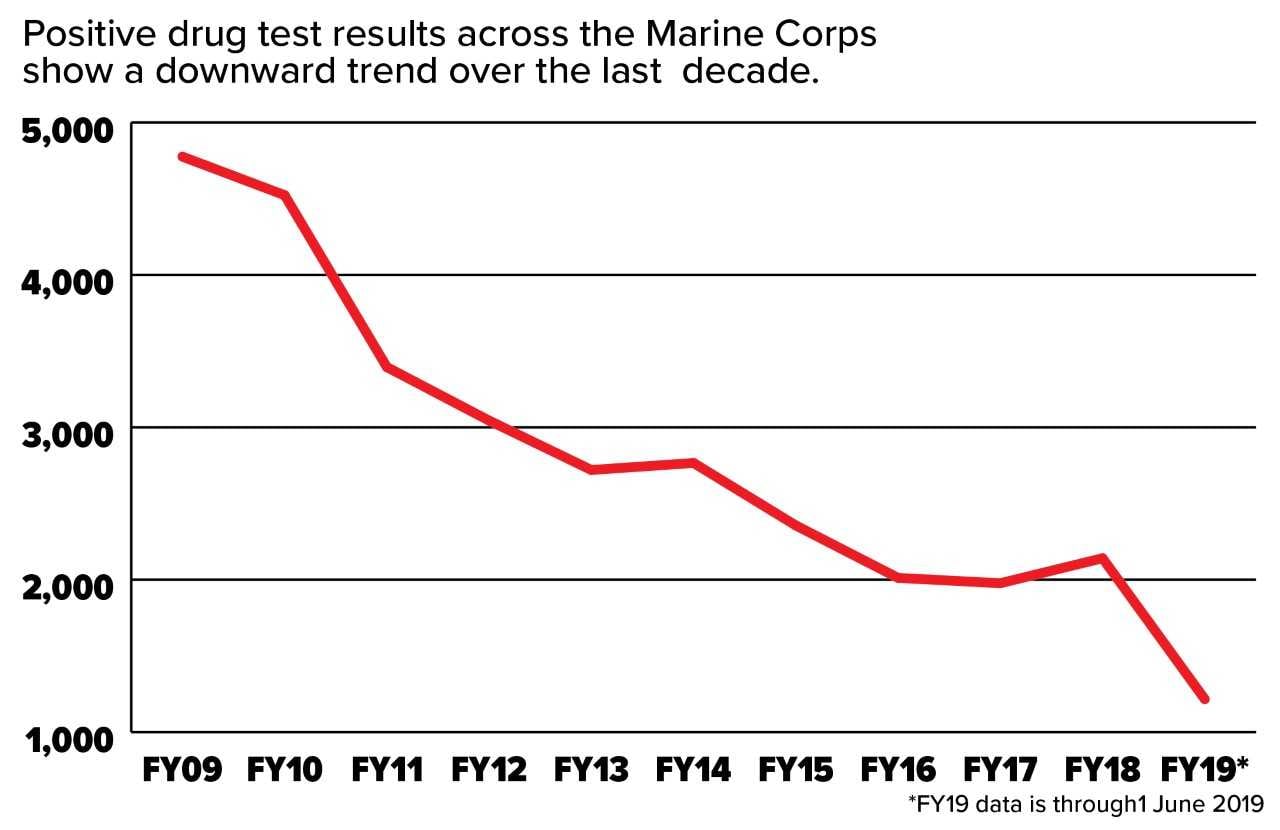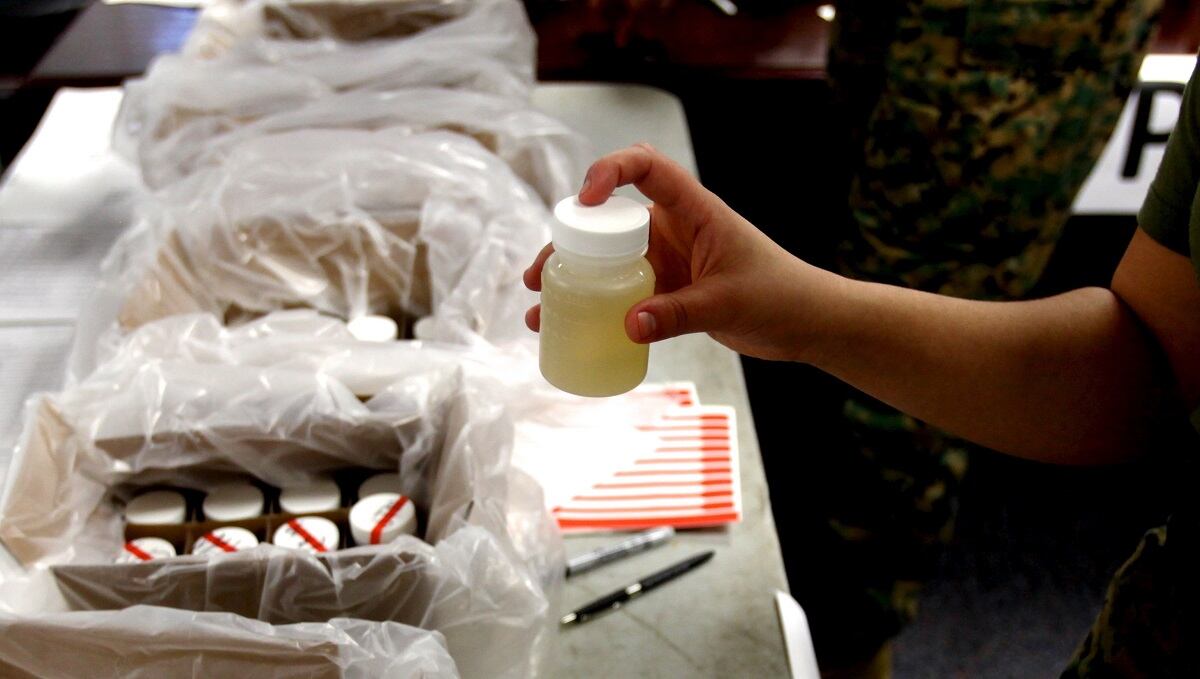Commandant of the Marine Corps Gen. David Berger said that “the vast majority of recruits require drug waivers for enlistment” in his planning guidance, which was posted late Tuesday.
The top Marine also said he was “deeply troubled” by the number of Marines who have not been booted from the Corps despite failing a drug test. Berger noted that out of the 2,410 Marines since fiscal year 2018 that have failed a drug test only 1,175 have been separated.
So is the Corps facing a major drug crisis? The data says the issue is a little more convoluted.
The number of positive drug tests among Marines has dropped from 4,776 in fiscal year 2009 to just 1,216 in fiscal 2019. The drug test figures — obtained by Marine Corps Times on July 15 through a government records request — show a general downward trend in positive drug tests over the past decade. The reason for the drop is unknown.
RELATED

The data represents positive test results, which may mean a single individual could have tested positive multiple times.
And for the drug waivers, the Corps has often touted the waivers it has dished out based on Defense Department criteria — which is someone who popped on a drug test at a military entrance processing station. That figure has been zero since 2010, according to Capt. Karoline Foote, a Marine spokeswoman.
But that “zero" is not an entirely accurate picture of the Corps’ recruit drug problem. The Corps has a stricter drug use policy for potential recruits than the DoD, and has been issuing its own waivers. Foote explained that the waivers mentioned in Berger’s planning guidance “are internal controls meant to maintain the high quality America expects of its Marines.”
The Marine Corps did not provide the number of waivers issued to potential recruits entering the Corps.
The drug waiver standards across the services complicates efforts to gauge the overall picture of recruits entering the service who have used or abused drugs.
“The only way to compare waivers from one service to the next is to compare those waivers actually defined by DoD as legitimate waivers, since the services have their own unique qualifiers,” Foote said.
From fiscal year 2009 to fiscal year 2019, Berger said that the Corps lost 11,765 Marines for drug and alcohol offenses — another 13,571 were booted for other misconduct.
“I am equally troubled by the fact that we do not specifically monitor personnel for continued substance abuse while in-service,” Berger wrote in his planning guidance.
Overall, data across the Corps does not appear to show a drug crisis. It is unknown why positive drug test results appear to be declining. All Marines are supposed to undergo drug testing every year, and the Corps also conducts random drug screenings.

“Marine Corps leaders are concerned not only with illicit drug abuse, but any substance abuse,” Foote said. “We are keenly focused on dramatically reducing any destructive behavior that negatively impacts the readiness of our force.”
In the fall of 2018, figures provided to Marine Corps Times from Marine Corps Recruiting Command did show an increase in the number of waivers granted to recruits between fiscal years 2015 and 2017.
But according to Gunnery Sgt. Justin Kronenberg, a Marine spokesman, the majority of waivers given to recruits were for medical reasons and not drug or misconduct related. But the drug waivers figures cited by Kronenberg were based on DoD criteria.
“Recently some improvements were made to the medical screening process that made it more efficient and allowed more applicants’ medical history to be individually considered by the Naval Bureau of Medicine and Surgery,” Kronenberg told Marine Corps Times.
Out of a total of 13,640 waivers granted between fiscal years 2015 and 2017, 12,434 were granted for medical reasons, according to Marine Corps Recruiting Command.
Marine Corps Times does not have the waiver data for 2018 or 2019.
“Increasing the readiness of our Marines requires purposeful reflection on how we live up to our core values; it is vital we actively cultivate our Marines into resilient leaders who are mentally, morally, and physically fit,” Foote said.
Shawn Snow is the senior reporter for Marine Corps Times and a Marine Corps veteran.





